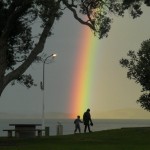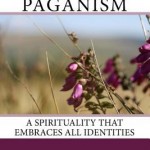In two posts back in January, Jason at Raise the Horns discussed the pros and cons of the word Pagan being used to include polytheist reconstructionist traditions, Wiccans, Heathens, Druids, Humanist and Naturalist Pagans. The first post had 198 comments; the second had 62 comments. This is clearly a hot topic.
- January 8, 2013 Running From the Word Pagan
- January 11, 2013 Big Tent Syndrome (Or Running To the Word Pagan)
In a previous post, I answered “five questions about Paganism“, despite my discomfort with talking about Paganism as a single tradition (I usually refer to ‘Pagan traditions’ in my posts, to try to emphasise their diversity and distinctness), and someone understandably complained that, as a polytheist, she didn’t identify with what I had characterised as Pagan ideas. In that particular instance, I knew that lots of people were responding to the survey, so the resulting picture would be suitably nuanced and multi-faceted, so I was not too worried if I only presented my own perspective. I am not trying to present my perspective as authoritative, despite the fact that I sometimes come across as “laying down the law” in what I write; I am just presenting my perspective, and people can take it or leave it. If it works for you, great; if not, post comments with constructive criticism of what I have said so that I can hone my ideas.
In another post, Values, beliefs, practices, I explored some of the common features that might be used to describe (but not define) traditions as Pagan. There were some useful suggestions in the comments – Katy Jennison suggested using fuzzy boundaries and identifying a list of features common to most Pagan traditions, so that the more of these features a tradition has, the more Pagan it is. John Beckett suggested having a core and a periphery, and talking about ‘the Pagan movement’ being headed in a general direction.
Many of the people who don’t want to identify as Pagan complain about the dominance of watered-down Wicca style rituals and ideas. They also assume that the simplistic version of Wicca presented by many 101 books is what initiated Wiccans practice. This situation is often exacerbated by Wiccans who try to speak for other traditions that get included in the Pagan umbrella, and getting it wrong. Just like, if a Heathen went to an interfaith gathering and started trying to describe Wicca, he or she would probably describe it as duotheist, and would thereby be getting it wrong.
The solution to this is for polytheists, Heathens etc to get involved in interfaith dialogue. And we should all try to learn more about each others’ traditions, so that we are not misrepresenting each other when we try to describe what we have in common.
As a polytheist, initiated, Gardnerian Wiccan, I would really like it if eclectic Paganism was not “watered-down Wicca”. Create your own rituals; don’t bastardize ours. And please don’t assume that I am a duotheist, or a “soft” polytheist. I once spent some months on a polytheist mailing list, and was amazed by the hostility to Wicca. Just because some Wiccans have misrepresented your tradition, don’t assume that we’re all going to do so.
I would really like it if “hard” polytheists didn’t automatically assume that all “soft” polytheists are really monotheists in disguise. (I think that deities are distinct but not discrete, and emerge from the substrate of energy in the universe; but that substrate doesn’t have a personality. That probably makes me a squidgy polytheist.)
I am a devotee of a selection of different deities from different pantheons, because they have called to me over the years.
I don’t base my rituals on a duotheistic paradigm.
I have had trouble with identifying as a Pagan because of some of the sheer rubbish talked by some Pagans. However, most people assume that I am a Pagan, and in the sense of what I originally meant by the term when I identified as such, I am one. In the sense that some people are using it these days, I am probably not one.
I don’t want watered-down Wicca to be the dominant paradigm in the “Pagan umbrella”, because watered-down Wicca is usually a misrepresentation of real Wicca, and is usually duotheist. I also want the voices of polytheists, Heathens, occultists, etc to be included in the conversation, whatever name we give to that conversation.
I think we are probably stuck with the label, but I respect the right of Heathens, polytheists, etc to not use the label to identify themselves, and can understand why they feel that way. Just as I would not include Hinduism or indigenous American religions under the Pagan umbrella, because they disavow that label, and because colonialists tried to label them as “pagan” in a pejorative way; so if polytheists and Heathens don’t want the label “Pagan” then I respect that.
It is also almost impossible to identify any one feature that all of us agree on. Reverence for Nature? Nope, you can find some people who are not into that. Belief in the immanence of the divine / deities? Nope, because of humanist and naturalist Pagans; and also I once came across a Heathen who believed that deities were transcendent. We all honour the same deities? Nope, because different people honour different pantheons.
About the only thing that can be said is that it’s not against our religions to take part in each others’ rituals.
So yes, the “Pagan umbrella” is leaking, but I think we need to look at ways to ensure that we don’t misrepresent each other’s traditions, and that we don’t assume that everyone else shares our values and perspectives. And maybe we need to change the metaphor from an umbrella to a big tent, or a party, or a movement, or perhaps a (slightly dysfunctional) family, or something. And if someone could come up with a name that wasn’t applied to us from outside, maybe that would help too.
However, if you look at Hinduism, which is not really a single religion, but a collection of traditions devoted to different deities, pantheons, gurus, and practices, and includes monotheists, monists, polytheists, and pantheists, but still manages to cohere as a body for the purposes of interaction with the outside world, I think it is quite a helpful model.
















